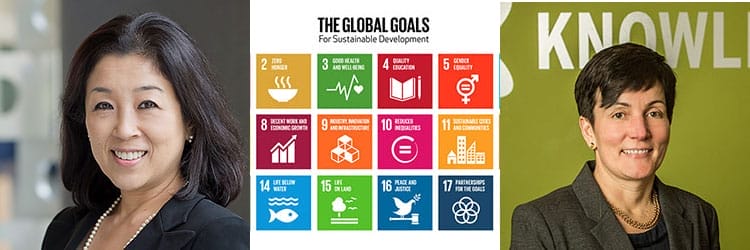The relationship between the World Bank and the Wharton School is such that no one can say with certainty exactly when it began. The work of both organizations is so rich, so broad and so diversified that it might be impossible to identify all of the touch points. The one, an intergovernmental organization founded in 1944 at Bretton Woods, has the official goal of poverty reduction. The other, the world’s premiere business school founded in 1881 by Joseph Wharton, aims to produce visionary business leaders. Their work has mingled, we know, when World Bank leaders have attended coursework at Wharton’s Aresty Institute of Executive Education. Or when faculty members like Olivia Mitchell, International Foundation of Employee Benefit Plans Professor, and Bulent Gultekin, associate professor of finance, have consulted with the World Bank.

What follows are current examples of the strong bond between the two global institutions. First, two members of the World Bank’s senior leadership are alumnae—its chief information officer, Stephanie von Friedeburg G92 WG92, and the CEO of the Multilateral Investment Guarantee Agency, Keiko Honda WG89. We spoke with both, about their work, their careers and their ties to the School.
We also spotlight the Ideas for Action competition, the latest collaboration between the Carol and Lawrence Zicklin Center for Business Ethics Research and the bank, a relationship dating back to 1998. Most recently, the Zicklin Center helped oversee an innovation tournament to engage and empower young adults (many of them Penn students) to take ownership of the U.N.’s post-2015 sustainable development agenda—essentially, to take ownership of the world’s future.
Read all three stories below by clicking on the corresponding images.
























